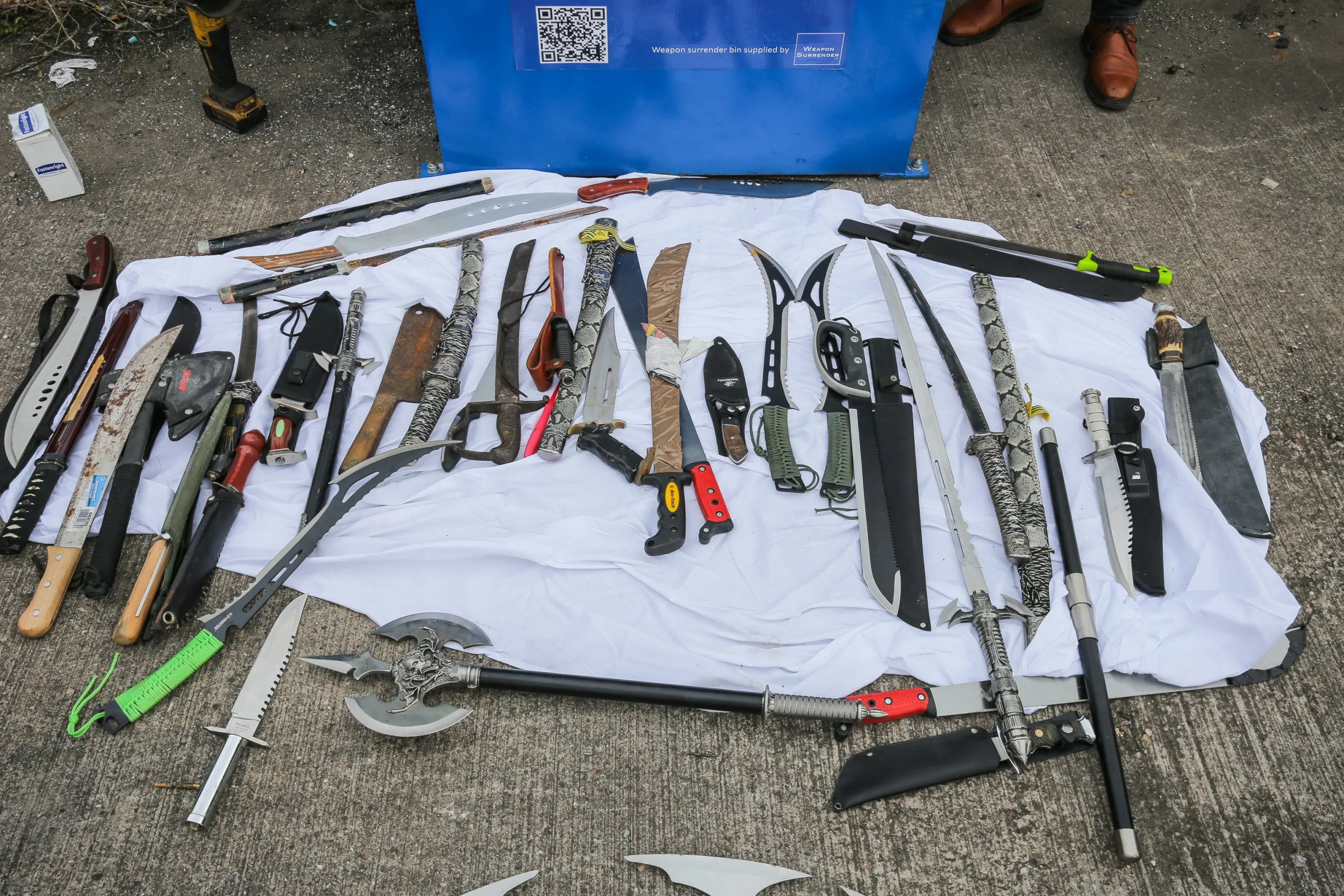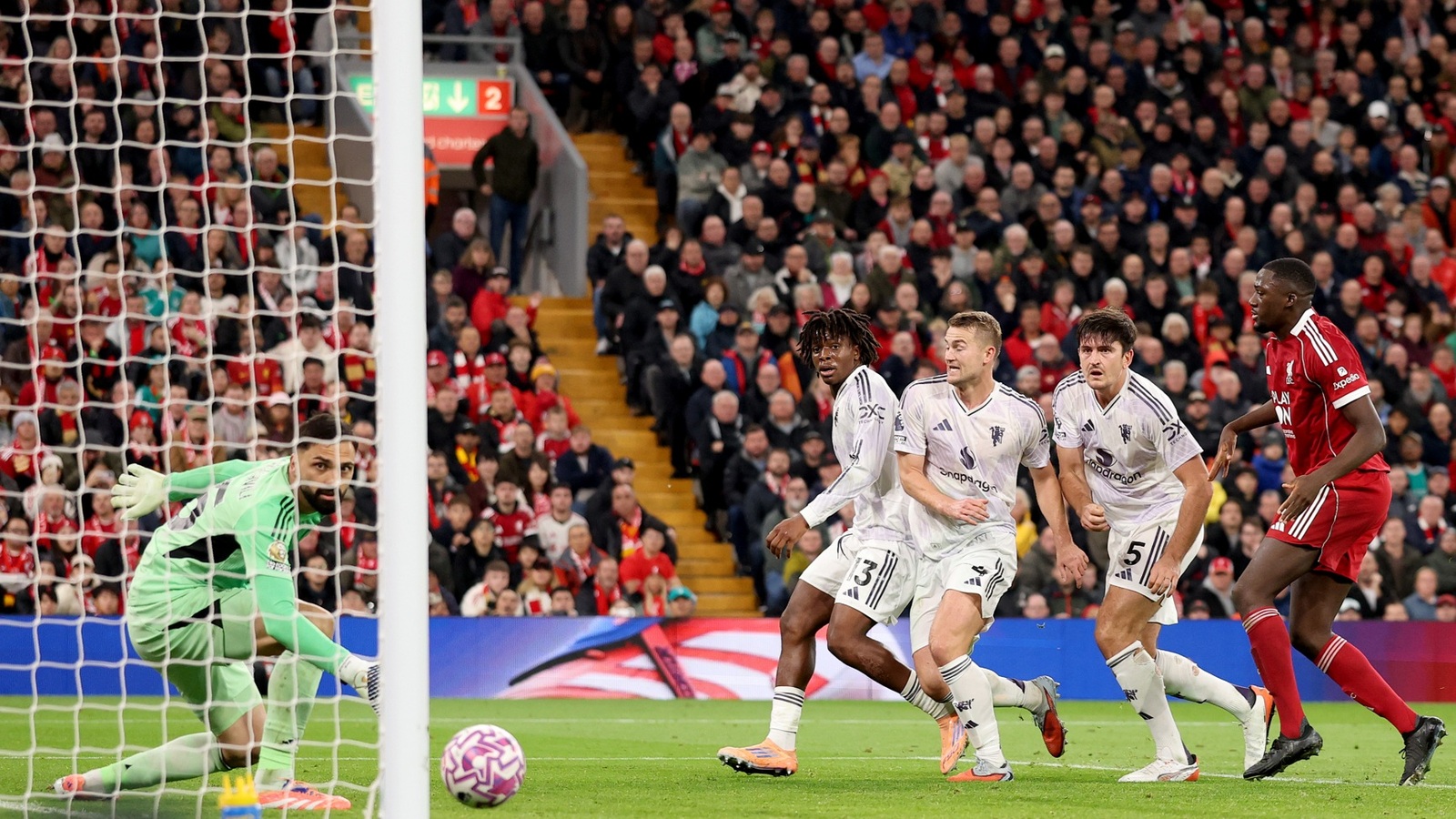Copyright metro

Zombie knives, ninja swords and macehetes are among the weapons seized in recent months (Picture: Joseph Walshe/SWNS) Tens of thousands of so-called ‘zombie knives’ and machetes were seized or surrendered last year, new figures reveal. Zombie knives are weapons which are more than eight inches long and typically have a jagged edge, spikes or more than two sharp points. The blades have been wielded by people as young as 16 to carry out deadly attacks on youngsters as they waited for buses or played football. Despite being banned in the UK for more than a year, the weapons are still available on thriving black markets or online for just £20. Daejaun Campbell was stabbed to death last September (Picture: PA) But figures released today by the Home Office show that since July 2024, 59,259 knives have been taken from the streets of England and Wales. Of them, 47,795 were zombie knives or machetes, sized by officers on patrol, flying drones or standing next to metal detectors in 2024. Border Force agents confiscated 3,334 knives, while 618 knives were recovered through the County Lines Programme, a scheme that tackled gangs luring young people into crime. Two knife amnesty schemes in August last year and July this year saw 7,512 knives and ninja swords handed into police stations, given to surrender vans teams or popped into surrender bins. Knife crime has long been concentrated in cities, with the knife surrender drop-offs rolled out in London, the West Midlands and Greater Manchester. So-called ‘zombie knives’ tend to have long, jagged blades (Picture: Metropolitan Police/PA Wire) Incidents involving sharp weapons have been spiralling for years in the UK, alarming police, campaigners and parents alike. Ronan Kanda, 16, was murdered with a ninja sword just yards from his home in Wolverhampton in June 2022. In June last year, 16-year-old Mikey Roynon was fatally stabbed in the neck with a large hunting knife described as ‘zombie-style’ during a birthday party in Bath, Somerset. Only three months later, three teenagers attacked Daejaun Campell with machetes as he cried out: ‘I’m 15, don’t let me die’. Oshay, 15, was ambushed and stabbed in the chest with a zombie knife as he left a friend’s house in Birmingham in August. His mother Sharday, 35, told Metro that her son being stabbed had long been her ‘biggest fear’. Knife crime falls for first time in years Knife crime has overall fallen for the first time in four years, dropping by 5% to 51,527 offences. Of these, robberies involving a knife or sharp instruments fell by 8% to 21,256. At least 196 people were murdered with a knife or sharp instrument in the 12 months to June 2025, official figures released last week show. This is down 18% compared to the year before, when 262 people were killed, according to the charity, The Ben Kinsella Trust. Of them, 57 were aged 25 or under – 17 were younger than 16. Why is knife crime a problem among young people? There are many reasons why young people carry knives, Dr Simone Fox, a consultant clinical and forensic psychologist and chartered member of the British Psychological Society, told Metro. Some youngsters insist that to carry a blade wins them respect and reassures them they can protect themselves if attacked. ‘Carrying a weapon may give them a sense of status and power. They may not feel safe at home, in the community or in school,’ Dr Fox says. These young people tend to have had negative life experiences in the past – such as abuse in the home, school exclusion and violence – and do not want to become victims again. ‘However, the evidence is contrary to this as carrying a knife increases the risk of harm, both towards them and to others,’ Dr Fox adds. To view this video please enable JavaScript, and consider upgrading to a web browser that supports HTML5 video Up Next Previous Page Next Page ‘Often these young people may be exploited themselves by older adults/criminals and may be involved in other criminal acts such as drug dealing.’ Teens sneaking knives out of the kitchen drawer into school bags is often done without being aware of the risks or consequences, The Cribs, a youth community programme, told Metro. Young people have told the programme that when they see violence on social media – and the way it is reported by the press – they feel ‘scared’. ‘What they see online plays a big part. Videos on TikTok or Instagram showing people chasing or stabbing each other make it look like the norm — and that fear spreads fast,’ The Cribs says. ‘The media always paints young people as trouble, especially Black boys. Some start believing that’s who they are meant to be — and live up to it.’ Ciaran Thapar, the director at the Youth Endowment Fund, which works to reduce works to youth violence, tells Metro that more needs to be done to prevent knife crime, not just solve the end result. Officials have rolled out knife surrender schemes in larger cities this year (Picture: Yui Mok/PA Wire) ‘If we want to stop children picking up a knife, we need to invest in what works,’ Thapar says. ‘Giving young people trusted adult mentors like youth workers and sports coaches, helping them manage their emotions through therapy rather than conflict, and creating real opportunities to earn money through work, not crime.’ Home Secretary, Shabana Mahmood, said the government is determined to half knife crime. ‘We will pursue this mission relentlessly, doing everything we can to get these weapons off our streets,’ she added. Get in touch with our news team by emailing us at webnews@metro.co.uk. For more stories like this, check our news page.



